Have you ever heard of intermittent fasting? It’s a buzzword that has taken the health and fitness world by storm. But what is it, exactly? Is it just another fad diet or does it have actual health benefits? In this post, we’ll dive into everything you need to know about intermittent fasting and how it can affect your overall health. From weight loss to improved energy levels, get ready to discover why so many people are jumping on to this fasting method.
What is intermittent fasting actually means?
Intermittent fasting is an eating pattern that cycles between periods of fasting and eating. It doesn’t describes which foods you should eat but rather when you should eat them (TIME PLAYS CRUCIAL ROLE IN EATING PATTERN). In this respect, it’s not a diet in the traditional sense but more of an eating pattern.

There are a number of different ways to do intermittent fasting, but the most common is the 16/8 method. This involves fasting for 16 hours per day and eating only during an 8-hour window. For example, you could choose to fast from 8 p.m. to noon the next day. This would mean that you could eat between noon and 8 p.m., but you would need to refrain from food (or calorie-containing beverages) for the remaining 16 hours.
Other popular methods include the 5:2 diet, which involves fasting for two days per week (eating 500-600 calories on those days) and eating normally the rest of the time, and the Warrior Diet, which involves eating large meal at dinner and fasting during the day.
Whichever method you choose, intermittent fasting can be an effective way to improve your overall health and lose weight in a sustainable way.
What is the working principle of Intermittent Fasting?
The primary mechanism by which intermittent works is that it induces a metabolic state known as ketosis, which occurs when the body is forced to burn fat for energy rather than glucose. Fasting causes weight loss because the body uses stored fat as its primary energy source.
According to Mattson, the body depletes its sugar stores and begins to burn fat after several hours without food. He refers to this as metabolic switching.
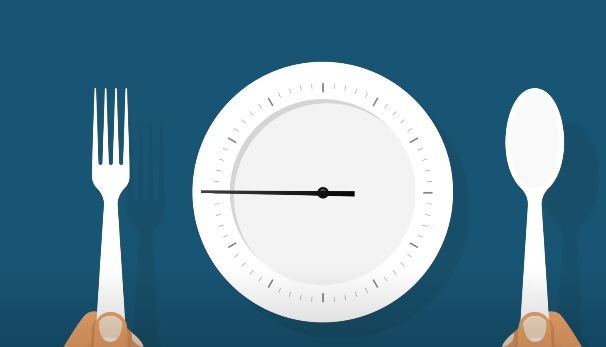
Intermittent fasting works by extending the time between when your body has burned through the calories from your previous meal and when it starts burning fat.
“Intermittent fasting contrasts with most Americans’ normal eating pattern, which is to eat all day,” Mattson says. “If someone eats three meals a day plus snacks without exercising, they’re running on those calories and not burning fat stores every time they eat.”
Study Reveals: Intermittent Fasting Guards Against Liver Inflammation and Liver Cancer
Researchers from the German Cancer Research Centre (DKFZ) and the University of Tubingen have found that intermittent fasting following a 5:2 schedule can halt the advancement of fatty liver disease in mice. This condition often escalates into chronic liver inflammation and may even lead to liver cancer.
Moreover, intermittent fasting has proven effective in diminishing the progression of liver cancer in mice already affected by liver inflammation. Scientists pinpointed two proteins within liver cells responsible for this beneficial outcome of fasting. Additionally, they discovered that an approved medication can partially mimic this effect.
Popular Plans for Intermittent Fasting
There are a few different ways that people go about intermittent fasting. The most popular method is the 16/8 approach, where you fast for 16 hours and eat only during an 8-hour window. This can be done daily, or on alternate days. Another common approach is the 5:2 diet, where you eat normally for 5 days of the week and restrict your calories to 500-700 per day for the other 2 days.
During the eating periods, you eat as you normally would. Intermittent fasting is generally used for weight loss, as it helps you eat fewer calories overall. However, it may also have some benefits for your health, such as reducing inflammation and improving blood sugar control.
Intermittent fasting is not a diet, it’s an eating pattern. You’re essentially just choosing to eat all your meals within a certain time frame. The most popular methods are the 16/8 and 5:2.
Fasting 16/8 method
With the 16/8 method, a popular variation of intermittent fasting, eating is limited to an 8-hour window each day, with the remaining 16 hours spent fasting.
A frequent example of how to modify this eating schedule to fit personal preferences and needs is to have the eating window from 12 pm to 8 pm and fast from 8 pm to 12 pm the following day. This method is also sometimes called the Leangains protocol.

It’s critical to eat a balanced diet that contains adequate nutrients to maintain health and well-being during the eating time. Whole omega 3 foods, nutrient-dense foods including fruits, vegetables, lean proteins, and healthy fats may be included in this. Crucial to stick to zero- or low-calorie beverages like water, black coffee, or tea during the fasting period.
Fasting 5/2 method
The 5/2 approach of intermittent fasting calls for eating regularly for five days a week and limiting calories to 500–600 on two separate days. So, you might eat normally from Monday to Friday, and then fast on Saturday and Sunday.
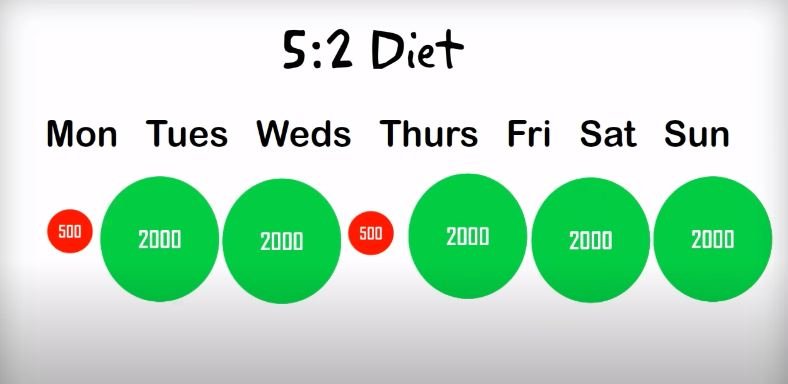
It is crucial to concentrate on eating nutrient-dense foods that will aid to offer satiety and energy while maintaining a low overall calorie intake on the days that you are fasting. Eat a balanced diet that contains adequate nutrients to maintain health and well being during the eating periods.
Fasting 12/12 method
It’s best to start slow with the 12:12 method. With this method, you fast for 12 hours and eat for 12 hours. So, if you stop eating at 8 p.m., you wouldn’t eat again until 8 a.m. the next day. Once you’re comfortable with this method, you can move on to longer fasting periods, such as the 16/8 or 5:2 methods.
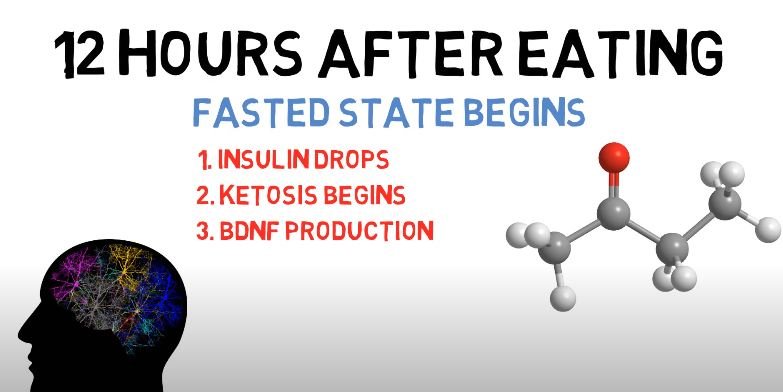
The 12/12 method of intermittent fasting is a relatively gentle form of fasting, and it might not have as many positive health effects as more severe methods of fasting. It can still be useful for people trying to cut back on late-night munching or change their eating habits, though.
So what can you actually eat while intermittent fasting? Well, that depends on which method you’re using and your calorie goals for the day. No matter which intermittent fasting plan you choose, the benefits are similar. This fasting can help you lose weight, improve your insulin sensitivity, and reduce inflammation. It can also help reduce your risk of heart disease, cancer, and other chronic diseases.
Intermittent Fasting: What can you eat or drink?
The rules for what you can eat and drink while intermittent fasting vary depending on the method you use. However, you are only permitted to consume zero or low-calorie beverages such as water, black coffee, or tea without sugar or cream during the fasting period.
You may consume any food or drink that fits within your daily caloric goals during the eating period. To support overall health and satiety, it is recommended to focus on whole, nutrient-dense foods such as
- Fruits
- Vegetables
- Lean proteins
- and healthy fats
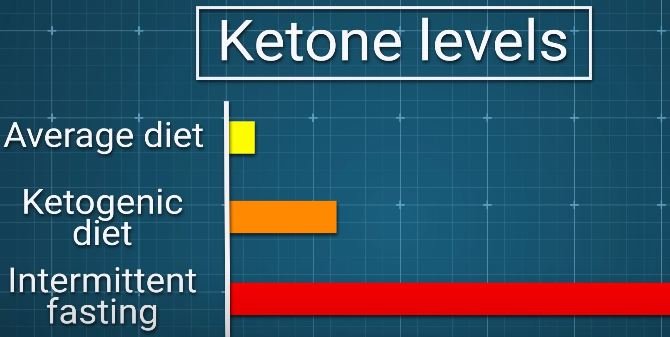
If you practice time-restricted fasting, in which you eat only during a specific window of time each day, it is critical to ensure that you are getting enough calories and nutrients during that time. Compared to average diet, intermittent fasting has the potential to increase ketone level by 20-fold.
Intermittent Fasting Incredible Benefits
Intermittent fasting has been shown to have numerous health benefits, including weight loss, improved insulin sensitivity, reduced inflammation, and increased lifespan.
One of the most well-known benefits of intermittent fasting is its ability to help you lose weight. By reducing your calorie intake and increasing the amount of time you spend in a fasted state, your body is forced to burn more fat for energy. Intermittent fasting has also been shown to improve insulin sensitivity, which can help reduce your risk of developing type 2 diabetes.

This fasting has also been shown to reduce inflammation throughout the body and increase lifespan in animal studies. While more research is needed to confirm these effects in humans, the evidence so far is promising.
If you’re interested in trying this type of fasting, talk to your doctor first to make sure it’s safe for you. Then, start with a short fasting period (12-16 hours) and gradually work up to longer periods as your body adjusts.
Can intermittent fasting cause diabetes?
There is no evidence that intermittent fasting causes diabetes. In fact, some studies have found that intermittent fasting can improve blood sugar control and insulin sensitivity, both of which are important factors in the development of diabetes.
Intermittent fasting may improve insulin sensitivity by promoting the release of growth hormone, which can aid in glucose metabolism regulation. Fasting can also lower insulin levels in the body, which may help improve insulin sensitivity and lower the risk of developing diabetes.
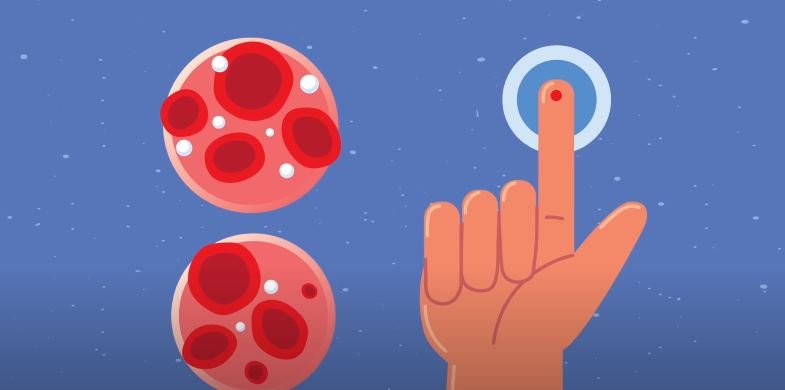
It should be noted, however, that that research on intermittent fasting and diabetes is still limited, and more research is needed to fully understand the long-term effects of this eating pattern on diabetes risk and management.
Can we drink milk during intermittent fasting?
Whether or not you can drink milk while intermittent fasting is determined by the method you use and your individual dietary needs.
If you consume zero or very few calories during the fasting period, milk is not permitted. It contains calories and may break your fast. This is due to the fact that even unsweetened milk contains a significant number of calories, the majority of which come from carbohydrates in the form of lactose.
It’s critical to keep in mind that the restrictions on what you can and cannot consume during intermittent fasting change depending on the technique you choose and your unique requirements. The ideal person to talk to if you have any worries or inquiries about what you can consume while fasting is a licenced dietitian.
Should I do Intermittent Fasting?
Your general health, way of life, and objectives will all influence whether or not you choose to practice intermittent fasting. A practice of eating known as intermittent fasting alternates between periods of fasting and eating. It has become a well-liked eating strategy for those seeking to reduce their body weight, promote longevity, and improve their metabolic health.
While determining whether or not to practice this fasting, keep the following things in mind:
Health issues: May not be appropriate for you if you have certain medical disorders, such as diabetes or low blood pressure. Before beginning any new diet or fitness programme, it is crucial to speak with your doctor.
Goals: It may be useful if losing weight is your main objective, but it is not a miracle cure. To have long-lasting benefits, it’s crucial to combine it with a healthy diet and frequent exercise.

Lifestyle: It can be challenging for some people to maintain, especially those who lead hectic lives.
Personal Choice: In the end, the choice this fasting method is a matter of personal preference. While some find it helpful and love the discipline it offers, others can find it to be overly restricting or difficult.
In conclusion, it’s critical to consider your health, lifestyle, objectives, and personal preferences if you’re thinking about trying this fasting. Also, it is always a good idea to see your doctor or a trained nutritionist before starting any new diet or exercise programme.
Related Q&A:
